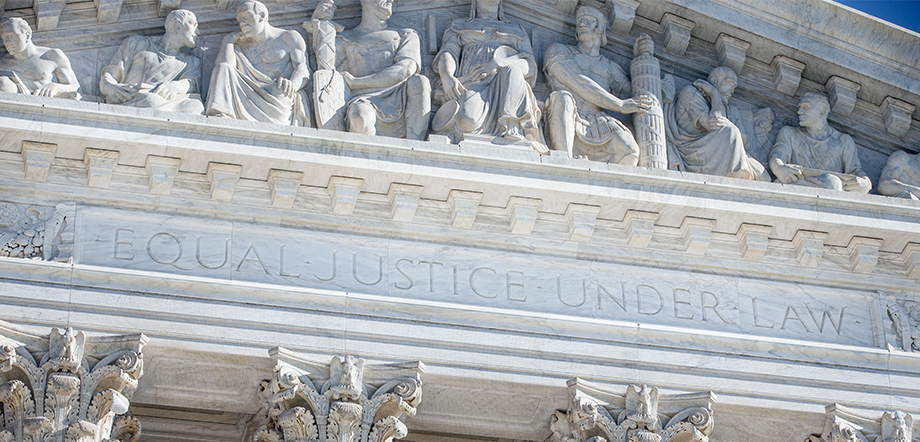Client Alerts
U.S. Supreme Court Rules PTO Attorney’s Fees Are Not Recoverable Under Patent Act § 145
December 2019

Client Alerts
U.S. Supreme Court Rules PTO Attorney’s Fees Are Not Recoverable Under Patent Act § 145
December 2019
In a unanimous decision issued on December 11, 2019, the United States Supreme Court confirmed in Peter v. NantKwest that the U.S. Patent & Trademark Office (PTO) is not entitled to recover its attorney’s fees (specifically, the pro rata salaries of its legal personnel) in a proceeding under 35 U.S.C. § 145.
§ 145 proceedings are civil actions filed by patent applicants arising from adverse outcomes on patent applications before the PTO. Here, Respondent NantKwest’s patent application for a cancer treatment method had been rejected by the PTO. Under the Patent Act, NantKwest had the option to appeal directly to the United States Court of Appeals for the Federal Circuit (CAFC) or to challenge the PTO’s decision in a district court lawsuit, under 35 U.S.C. § 145. NantKwest filed a § 145 action in the Eastern District of Virginia. The district court agreed with the PTO’s rejection and granted summary judgment to the PTO.
The PTO then filed a motion for reimbursement of “all the expenses of the proceedings” pursuant to § 145, and, “for the first time in the 170-year history of § 145,” specifically sought the pro rata salaries of the PTO attorneys and a paralegal who worked on the case. The district court denied the PTO’s motion for its pro rata legal fees as “expenses” of the § 145 proceeding. The district court found that § 145 was not clear enough to rebut the “American Rule,” the principle that litigants are responsible for their own attorney’s fees, absent an express grant from Congress. After a divided Federal Circuit panel decision initially reversed the district court, the CAFC en banc affirmed the Eastern District of Virginia’s decision. The U.S. Supreme Court granted certiorari.
The Court began its analysis by recognizing that the American Rule is the “bedrock principle” for considering an award of attorney’s fees and rejected as “incorrect” the PTO’s argument that the American Rule “does not apply at all” to § 145. Thus, with the American Rule as “the starting point for assessing whether § 145 authorizes payment of the PTO’s legal fees,” the Court analyzed whether Congress provided a sufficiently “specific and explicit” indication of intent to overcome the American Rule presumption. Finding that the mere reference to “expenses” in § 145 did not invoke attorney’s fees with enough “clarity,” the Court determined § 145’s plain text did not overcome the presumption against fee shifting. Also, the Court looked at other statutory uses of “expenses” and “attorney’s fees” and determined that the terms were distinct and not inclusive of each other unless explicitly so defined.
Indeed, looking at the Patent Act’s history, the Court determined that “Congress did not intend to shift fees in § 145 actions,” citing the Patent Act of July 4, 1836. The Court recognized that “when Congress intended to provide for attorney’s fees in the Patent Act, it stated so explicitly,” citing, for example, 35 U.S.C. § 285 (“The court in exceptional cases may award reasonable attorney fees to the prevailing party”).
In conclusion, the Court unambiguously ruled that “the PTO cannot recover the pro rata salaries of its legal personnel under § 145.”
Implications for Our Clients
Be assured that this ruling does not change the statutory avenues available to you for appealing an adverse decision by the PTO on a pending patent application. You can appeal under § 141 based on the existing record to the CAFC directly or, if you wish to present new evidence not presented to the PTO, you can pursue a § 145 lawsuit in district court. If you decide to file a § 145 action, the Supreme Court has clarified that the PTO cannot recover attorney’s fees from you based on the long-held American Rule that litigants pay their own attorney’s fees and that § 145 is no exception.
Moreover, the scope of this ruling appears to be limited to § 145 actions and will not have broader implications on U.S. patent law outside of that unique type of lawsuit. For example, the law regarding attorney’s fees awards in patent infringement actions only in exceptional cases under 35 U.S.C. § 285 (as interpreted by the Supreme Court in cases like Octane Fitness, LLC v. Icon Health & Fitness and Highmark Inc. v. Allcare Health Management System, Inc.) remains unchanged by this decision.[i]
[i] This Client Alert was prepared with the invaluable assistance of Tucker Ellis intellectual property law clerk Francesca Seretti, a second-year law student at Case Western Reserve University School of Law.
ADDITIONAL INFORMATION
For more information, please contact:
- Nicholas B. Clifford | 314.571.4962 | nicholas.clifford@tuckerellis.com
This Client Alert has been prepared by Tucker Ellis LLP for the use of our clients. Although prepared by professionals, it should not be used as a substitute for legal counseling in specific situations. Readers should not act upon the information contained herein without professional guidance.
